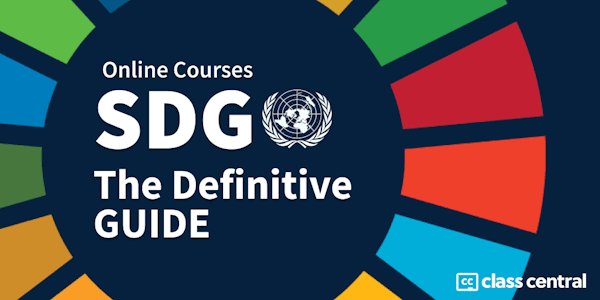Overview
Renewable energy's future is bright, yet uncertain. Will it continue to grow rapidly? Is current growth sufficient to achieve climate stabilization? How do related technologies, like electric vehicles and heat pumps, fit in? This course will shed light on the many confusing and at-times inconsistent claims and predictions for renewable energy.
We’ll review promising new renewable technologies and approaches, such as floating platforms for wind turbines and building-integrated photovoltaics (PV), and point out key opportunities and limitations. We’ll take a close look at possible futures of enabling technologies such as electricity storage, electric vehicles and hydrogen, which can support and enhance renewables. We’ll then unravel key trends and new approaches, such as distributed energy and electrification, and explain how they affect renewable energy’s future.
Renewable energy, aided by enabling technologies such as electric vehicles and storage, will eventually dominate energy systems worldwide. From this course, you’ll learn the current status and likely future paths of renewable energy. With this knowledge, you’ll be able to pinpoint the opportunities in this vibrant industry and get in front of the change.
Course logo image credit: "Wind Turbine" icon courtesy of Vectors Point from the Noun Project.
Syllabus
- Introduction, Energy Transitions, and Scenarios
- Renewable energy's future is bright, yet uncertain. Will it continue to grow rapidly? Is current growth sufficient to achieve climate stabilization? How do other technologies, like electric vehicles and heat pumps, fit in? In these lessons, we take a close look at several leading energy scenarios - models that describe possible futures for renewable energy. These scenarios show where we are headed, and where we need to be headed in order to stop climate change.
- Renewable Energy Technology Futures: Wind, Solar PV, and More
- Wind turbines and solar photovoltaics (PV) are on a path of rapid growth. In these lessons, we review promising new technical approaches for wind and solar PV, such as offshore floating wind platforms and building-integrated PV. We’ll also assess other renewable energy technologies that are on different paths: concentrating solar power (CSP), ocean energy, and biofuels.
- Enabling Technologies for Renewable Energy
- For renewables to provide the bulk of global energy needs, ‘enabling’ technologies - those that support and enhance renewables - are needed as well. In these lessons, we describe the critical roles these enabling technologies play, and review their current status and future prospects. Enabling technologies covered include storage (notably batteries), electric vehicles, and hydrogen.
- Emerging Issues and Concepts in Renewable Energy
- Renewables are driving rapid change in energy systems worldwide, and these systems will look very different in the future. These lessons examine key trends, issues, and concepts for future renewables-based energy systems. These included electrification, distributed energy, electricity market structures, and others.
- Summary and Review
- Renewable energy, aided by enabling technologies such as electric vehicles and storage, will eventually dominate energy systems worldwide. In these lessons, we pull all the course material together and show how the pieces fit together.
Taught by
Paul Komor
Tags
Reviews
4.5 rating, based on 2 Class Central reviews
4.8 rating at Coursera based on 202 ratings
Showing Class Central Sort
-
Energy-related environmental emissions, global warming, and climate change pose critical challenges for 21st-century civilization. A delicate equilibrium between energy demands and environmental stewardship is imperative. As the interplay of emissions and energy demand, renewables are most significant for mitigating climate change effect. For this purpose this course is very effective.
-
The course basically solar and wind is competitive and future key renewable energies. Among them solar PV rapid development of less materials usages and increasing efficiency is very attractive approach. Advancement of technologies and lessoning of cost both ways are supportive to both city based grid supported and rural stand alone energy supply.






